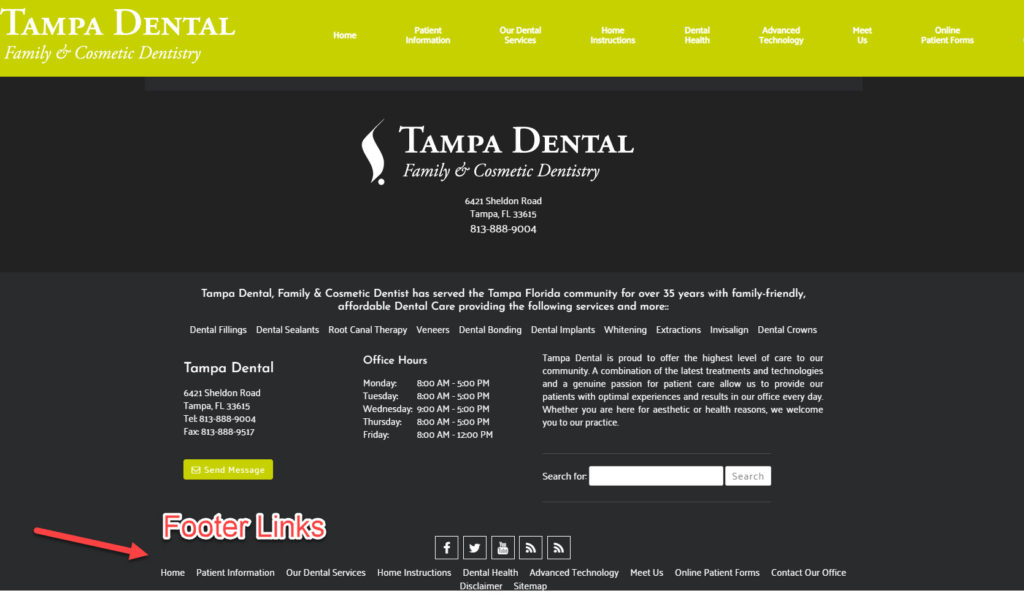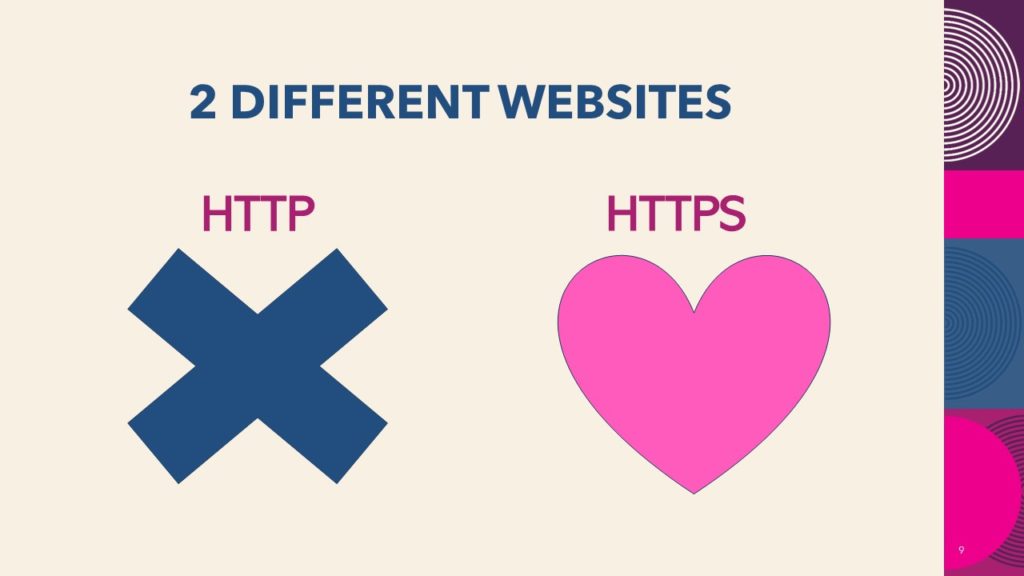Building internal links on your website is an important part of a SEO strategy
Internal links are hyperlinks that link to other pages on your own site. They serve several purposes, such as helping visitors navigate your site, boosting time on site by leading visitors to other relevant content, and directing people to their next step. Additionally, internal links help search engines understand your site’s structure and signal which pages are most important.
Why are internal links important?
- Helps visitors navigate your site
- Boosts time on site by leading visitors to other relevant content
- Directs people to your “next step”
- Helps search engines understand your site’s structure and signals which pages are most important (because there are a lot of links pointing to them)
To effectively build internal links on your website, consider the following tips and best practices:
-
Use Descriptive Anchor Text
Anchor text is the visible part of the link that users click. Make sure to use anchor text that accurately describes the content of the linked page. For example, instead of using generic phrases like “Click here” or “Learn More,” opt for anchor text that includes relevant keywords or provides a clear idea of what the page is about.
The anchor text in this example is “Purple pony for sale”:<a href="/purple-pony">Purple pony for sale</a> -
Linked Images
If you are using linked images, the image alt tag will be used for the anchor text by search engines.
“Purple Pony for sale” is the anchor text in this example as well.<a href="https://abc.com/purple-pony"><img src="/purple-pony.jpg" alt="Purple pony for sale"/> </a> -
Link Types for SEO Value
Utilize different link types to enhance your SEO efforts. Exact match links use the same keyword phrase as the linked page, while partial match links involve variations or related keywords. It's beneficial to incorporate both types of links to optimize your internal linking strategy.
-
Avoid Link Types with Little SEO Value
Naked links, which use the actual URL as the anchor text, and generic links like "Click here" should be avoided. These types of links do not provide context to search engines or users about the content they will find when clicking the link. Instead, focus on using descriptive anchor text that aligns with the content/topic of the linked page.
-
Consider Link Placement
 The placement of links within your web pages can affect their perceived importance by search engines. Links in the body of the page, especially in above-fold areas (visible without scrolling), are generally considered stronger than those in the footer or sidebar. Place links where they make sense contextually and provide value to users.
The placement of links within your web pages can affect their perceived importance by search engines. Links in the body of the page, especially in above-fold areas (visible without scrolling), are generally considered stronger than those in the footer or sidebar. Place links where they make sense contextually and provide value to users. -
Maintain Relevance
Ensure that the links you include on a page are relevant to the content and topic being discussed. The anchor text should accurately represent the page you are linking to. By maintaining relevance, you enhance the user experience and help search engines understand the context of your website.
-
Use a Variety of Keyword Phrases
Avoid using the same exact anchor text repeatedly for a specific page. Instead, incorporate several variations of keywords in your anchor text to avoid appearing spammy or suspicious to search engines. This approach also provides a more diverse and natural linking profile.
-
Mind the Number of Links
While there is no hard and fast rule regarding the number of links per page, it is essential to use them with intention. Avoid filling a page with excessive links that overwhelm visitors. Instead, use internal links to provide additional information on a topic or guide visitors towards your products or services. Focus on guiding visitors towards their end goals, whether it's contacting you, making a purchase, or acquiring more information.
-
Keep Anchor Text Length Brief
Aim to keep your anchor text as concise as possible. Long anchor text may clutter your content and make it less user-friendly. Focus on using clear and concise phrases that accurately describe the linked page.
-
Utilize Rich Anchor Text
Rich anchor text incorporates keywords you are targeting to rank for in search results. However, it's crucial to maintain a natural balance and avoid over-optimization. Don't force keywords into your anchor text; instead, ensure it flows naturally within the context of your content.
-
Use the HTTPS Version of Links
 Ensure your internal links use the secure HTTPS version of your website's URLs. By using an SSL certificate and enforcing the HTTPS version, you present a secure and preferred version of your site to both users and search engines. This consistency ensures that all search engine love is directed to your preferred version.
Ensure your internal links use the secure HTTPS version of your website's URLs. By using an SSL certificate and enforcing the HTTPS version, you present a secure and preferred version of your site to both users and search engines. This consistency ensures that all search engine love is directed to your preferred version.
Finding Link Opportunities on Your Website:
You will have pages that only have 1 or 2 internal links and some that have 5-6. Use your best judgement and link to other pages on your site when it makes sense.
If you are using WordPress, you can easily find link opportunities by searching your pages and posts for relevant keywords. Within your WordPress dashboard, navigate to either pages or posts and use the search feature to enter a keyword phrase. Review the search results and identify any opportunities to link to your main content within those pages.
Setting Goals and Taking Action:
Building internal links on your website requires a strategic approach. Set aside dedicated time each week to focus on this task. Evaluate your pages and identify opportunities where internal links can enhance the user experience and improve the structure of your site. By investing time in building internal links, you will improve the overall performance and visibility of your website.
Remember, an effective internal linking strategy not only benefits your SEO efforts but also provides a smoother and more informative user experience.
